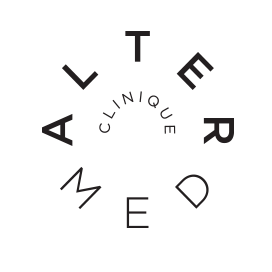fertility specialized care
Acupuncture is a form of traditional Chinese medicine that uses needles to stimulate acupuncture points on the body. This practice is often used to treat a variety of health problems, including fertility.
In fertility, acupuncture can be used as a complementary treatment to help increase the chances of natural conception or to improve the effectiveness of medical fertility treatments such as in vitro fertilization (IVF) or artificial insemination (AI).
In the case of fertility, it is important to understand that acupuncture cannot cure all medical conditions that can cause fertility problems. However, it can help reduce the symptoms associated with these conditions and improve the chances of conception.
Here are some medical conditions that can be treated specifically with acupuncture to promote fertility:
Endometriosis: Endometriosis is a condition that occurs when the tissue lining the uterus begins to grow outside the uterus. This condition can cause severe menstrual pain and fertility problems. Acupuncture can help reduce the pain and inflammation associated with endometriosis.
Polycystic ovarian syndrome (PCOS): PCOS is a condition where the ovaries produce high levels of male hormones, which can cause menstrual irregularities and fertility problems. Acupuncture can help reduce male hormone levels and improve egg quality.
Low sperm motility: Low sperm motility can be a problem for couples trying to conceive. Acupuncture can help increase blood flow to the male reproductive organs and improve sperm quality.
Ovulation disorders: Ovulation disorders, such as anovulation or irregular menstrual cycles, can cause fertility problems. Acupuncture can help regulate the hormones responsible for ovulation and improve the quality of the oocyte.
In summary, acupuncture can be an effective complementary treatment to promote fertility in patients with various medical conditions. However, it is important to consult with a qualified and experienced acupuncturist to determine if acupuncture is an appropriate treatment for your particular situation.
Osteopathy is a holistic therapeutic approach that aims to restore balance and harmony in the body by treating structural, functional and emotional imbalances that can affect health and well-being. In the area of fertility, osteopathy can help women and men improve their fertility by treating physical and emotional imbalances that may affect their ability to conceive.
Certain medical conditions can be specifically treated by a specialized osteopath to promote fertility. For example, endometriosis, ovarian cysts, pelvic adhesions, uterine fibroids and hormonal imbalances can all be treated by osteopathy to improve reproductive health and fertility. reproductive health and fertility.
In addition, the somato-emotional approach to osteopathy can also play an important role in the treatment of fertility. This approach considers that emotions and thoughts can be stored in the body in the form of muscle tension, energy blockages and organ dysfunction. Osteopaths using this approach can work on these tensions and emotional blockages to help patients release negative emotions that may be affecting their fertility.
The energy treatment approach can also be used to help improve fertility in osteopathy. This approach uses gentle manipulative techniques to help rebalance energy flows in the body, stimulating areas of the body related to fertility and removing energy blockages that may affect the body's ability to conceive.
In conclusion, osteopathy can be an effective treatment to promote fertility, working on structural, functional and emotional imbalances that can affect reproductive health. Specialized osteopaths can treat specific pathologies related to fertility, while the somato-emotional approach and energy treatment can help release emotional tension and rebalance energy flows in the body to improve fertility.
Physical therapy can play an important role in the management of fertility-related medical conditions in both men and women. Physical therapists who specialize in the field can help treat conditions such as polycystic ovary syndrome, endometriosis, male infertility and sperm quality problems, as well as other fertility-related medical conditions.
A common approach in physical therapy to improve fertility is perineal rehabilitation. This method consists of exercises to strengthen the pelvic floor muscles to improve their functionality and tone. The pelvic floor muscles play an important role in maintaining urinary, bowel and sexual function, as well as supporting the uterus, ovaries and bladder.
Perineal rehabilitation can help women improve their fertility by strengthening the muscles that support the uterus and increasing blood flow to the genitals. For men, this approach can help improve semen quality and treat male infertility by strengthening the pelvic floor muscles involved in ejaculation.
Another physiotherapy approach to improving fertility is the perinatal treatment approach. This method consists of an assessment and manual treatment of the pelvic area to help improve mobility, function and blood flow in this area. Physiotherapists specializing in this approach can help treat chronic pelvic pain, menstrual disorders and other medical problems related to fertility.
In conclusion, physical therapy can provide effective treatments to help patients with fertility-related medical conditions improve their health and quality of life. Perineal rehabilitation and the perinatal treatment approach are specific treatment methods offered by physiotherapists who specialize in this area. It is important for patients to consult a specialized physiotherapist to receive personalized treatment for their specific medical condition.


